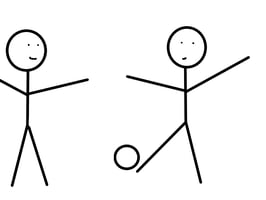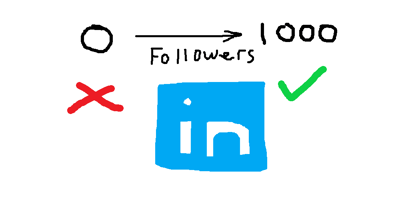Your hobbies say a lot about you. Especially if you have none.
Why 90% of people fail to reach their New Year goals.

9 out of 10 people miss the mark when striving towards their January goals. But why?
With the Earth completing another revolution around the Sun. It is that time of year when everyone starts embarking on a journey to improve their lives by setting new goals.
Come the end of January though, most people who told themselves that this year was “their” year have failed already.
So why does your sudden burst of motivation just disappear?
Well the answer is simple.
It lies in the reality that people in modern society are too comfortable. The path of least resistance is just too incredibly tempting. Making you fall off the bandwagon at the first or second hurdle.
So let’s break down why it is so easy to fail to reach your goals when entering a new year.
Instant Gratification
I’ve talked about this before in the context of people's diets. As well as with procrastination. Often not sticking to your goals is a problem that stems back to instant gratification. Wherein your new habits, routines and actions aren’t creating tangible results fast enough, therefore you give up.
To put this into context imagine your New Year's Goal is “to finally get in shape”. Maybe that means losing 5kg (or 10lbs) of extra fat and putting on some muscle or maybe it’s running your first 5k in a reasonable time.
Regardless of the goal, the reason you end up giving up before you complete your goal is because you do not see results fast enough. The culmination of your consistent actions is really what makes or breaks whether you achieve your goals.
Everyone knows that if you went to the gym and worked out for 8 hours, you would see very little difference in the mirror when you got home.
But if you went to the gym everyday for 30-60 minutes. At some point you would start seeing progress.
It’s hard to say when change would occur. It depends on the person. But it WOULD happen.
So how can you avoid giving into instant gratification?
With regards to dieting and exercise there are some simple steps you can implement to achieve your goal. Check out my article on Dieting here.
But what else can you do to achieve your goals this year?
Be Specific
Just like in the example above, when talking to people I find that their goals are not specific enough to induce change.
“Getting in shape” or “losing weight” is not well defined enough to create an action for you to take.
In my experience, when goal setting, having a methodical process on how I can attack the problem gives me the motivation to take steps towards completing it.
If you were asked to build a boat, how would you start? I would imagine research and planning would be your first step.
You probably wouldn’t just start cutting wood and try gluing it together in the hopes that it would float.
The same principle applies to any goal. Ultimately your goal will be centered around a problem you are having in life.
Setting a specific goal will help you to start breaking it down to undertake it.
A good framework is to set SMARTER goals, which is an acronym for:
Specific - What is your actual target?
Measurable - What can you measure your progress in?
Achievable/Realistic - Is it actually doable?
Easy - Can you make it simple to do everyday?
Reflective - Revisit your goal and revise it every week/month. Monitor your progress.
Implementing this framework can make a world of difference. I mean how could you achieve something when you don’t have a specific target you are aiming at?
So let’s put that into use for: “I want to lose weight”.
In the SMARTER goal framework that goal would instead look like: “I want to lose 2kg every Month until I reach 75kg by cutting my daily food intake to 20% less than it is currently”.
It is specific on how much weight you want to lose. You can measure your progress every month or week on the scale. It is very achievable in the sense that you can lose 0.5kg every week with little to moderate effort, cardio or other significant changes. You can easily manage your daily intake and cut it by 20%. You can reflect on your progress and adjust until you reach 75kg.
The Bottom Line.
The real question you have to ask yourself is: what are you willing to endure long term to achieve your goals?
Consistency is key.
That’s all for today, Happy New Year!
.png?width=200&height=200&name=DREW%20WYATT%20(5).png)


